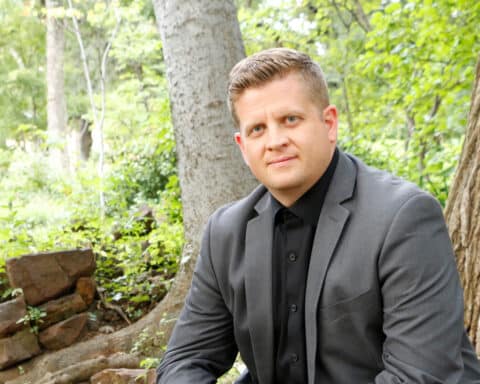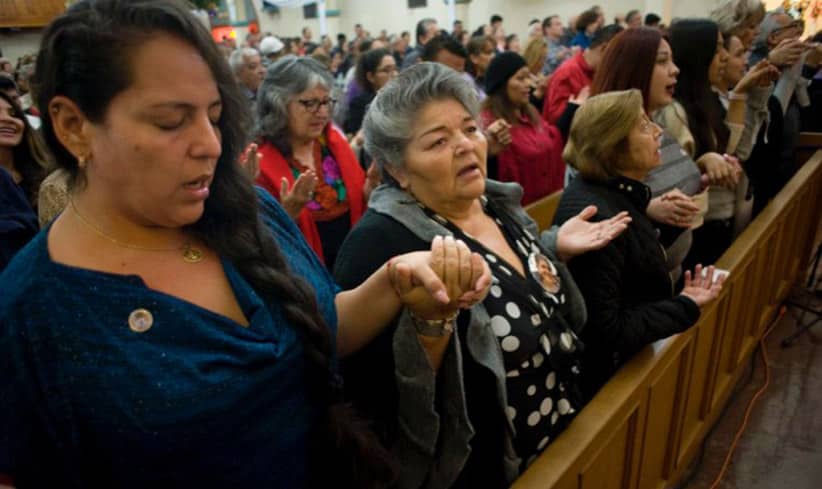I enjoy washing dishes. Not as much as most other things, but a little. I like seeing the pile of dirty dishes in the sink and on the counter turn into clean dishes arranged neatly in the drain rack. But I hate washing pots with stuff like fried egg caked on the bottom.
Not burned on, that’s OK; that I’ll scrub off. But the soft rubbery stuff, yuck. I really hate seeing the food get all caught up in the scrubber.
Much of our personalities and, perhaps, even characters are given to us. We do not make ourselves nearly as much as we think we do. And as preachers, self-help writers, social commenters and other people who tell us what we should do with ourselves think we do. We need to think about this more. It matters to our life together.
To enjoy washing dishes may strike you as a little weird, and I won’t argue. My wife would agree. She doesn’t like washing dishes, but — and this strikes me as really weird –she doesn’t mind cleaning the pans with stuff caked on the bottom. She doesn’t understand my aversion.
Who knows where her and my feelings about washing dishes come from? It’s pre-rational, but it’s fixed. How much of our other responses, reactions, dislikes, attractions and the like come from equally mysterious and apparently irrational places? I mean the things that seem natural to us, obvious, self-evident, just the way things are when they’re done right.
Much of this feeling, which we all have, is the equivalent of my enjoying washing dishes and hating scraping rubbery egg off the bottom of the pan. It’s a feeling that needs, just so the dishes get done, someone with the opposite feeling.
Look at how we think theologically. How much of our taste for order or for flexibility in theology is given us, for example? How much of our desire to argue or to listen? Our need to settle questions or hold them open, and our feeling that one can say enough or there’s always more to be said? Our preference for distinction or for synthesis, for polemics or for affirmation?
The theologian Friedrich von Hügel divided human minds into two types. He was one of the greats of the early 20th century, now not much read. His “Letters to a Niece,” letters of spiritual and intellectual direction, are wonderful, though sometimes you need to read closely.
He thought a lot about what kind of creatures we are, and how that affects how we seek the truth. In their way of pursuing truth, he wrote, people’s minds work in one of two ways, broadly speaking.
One type of mind, he wrote, wants “clear lines of demarcation.” These minds see truths as geometrical figures, spaces set off from everything else by clear lines. “Within these luminous lines, all is true, ‘safe,’ ‘correct’; outside them at once begins error, ‘danger’ incorrectness.”
The other type sees truths “as intensely luminous centers,” whose light gets dimmer the farther away you go. These minds move away from the luminous centers to see what can be seen in the light. When they’ve gone far enough, “they fall back upon their central light.”
We see the difference in almost every debate within the Church, even among theologians. We really see it in Catholics arguing on Facebook.
People of both types throw arguments back and forth, getting angrier and angrier, because they don’t realize they’re looking at the issue in two very different ways. There’s no conclusive way to settle a difference when two people argue about different aspects of the question. The way each one looks at the issue feels natural to them, obvious and self-evident. Each suspects something’s wrong with the other, because he’s so blind.
They both have minds that direct them to see different aspects of the problem and, therefore, different dangers and different answers. The second should say to the first, “I appreciate your care that we keep the truths we have.” The first should say to the second, “I appreciate your care to find deeper meanings to the truths we have.”
Each should challenge the other when they go too far. When the first oversimplifes the truth, for example, and the second denies its authority. As Hügel said, “We all greatly require criticism, stimulation, reproof, of our most intimate and cherished convictions; and it is our reciprocal duty, with tact and restraint, to try and serve our fellows similarly.”
This question of what we’re given deserves more consideration than it gets. We’re not so often obviously right as we think we are. We’re just who we are, when others are who they are. Together, we’re something greater than we can be on our own. That’s part of what “catholic” means.
David Mills writes from Pennsylvania.





